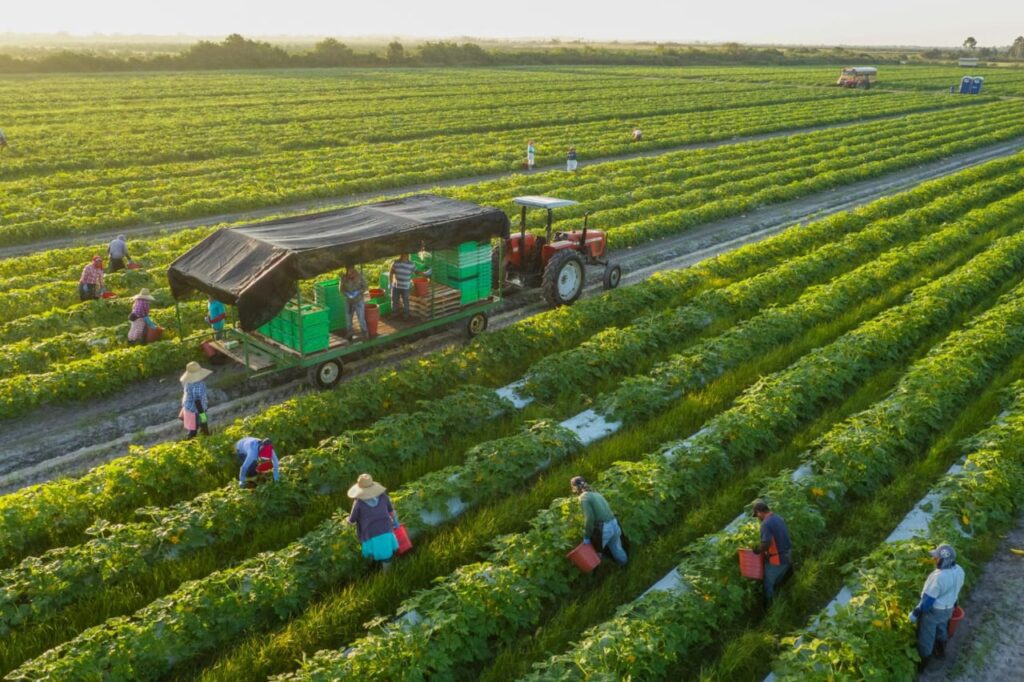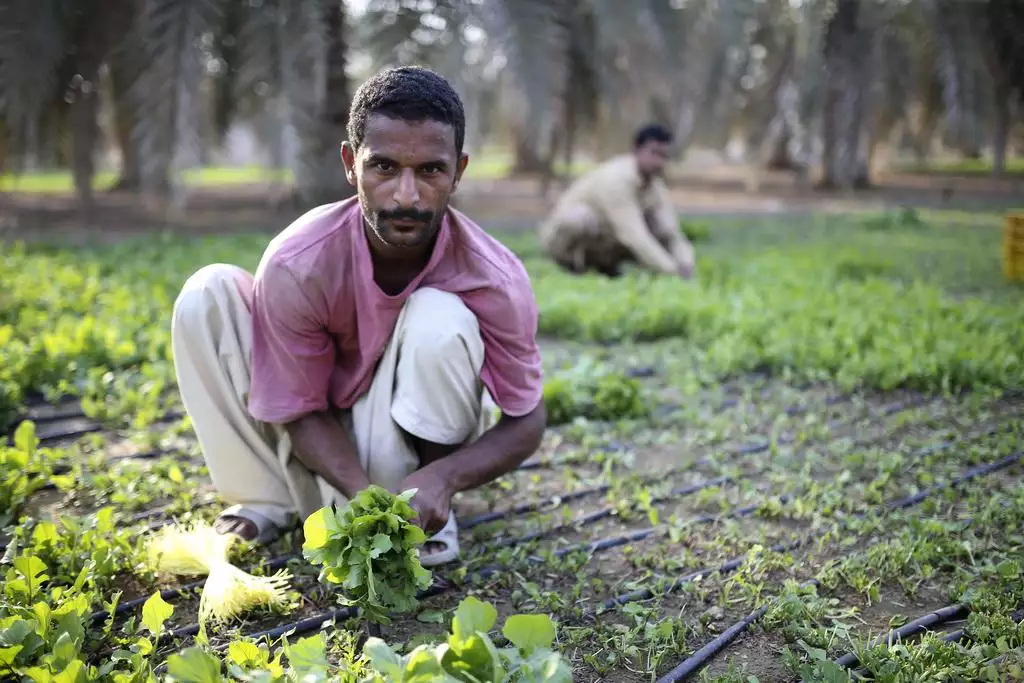Agro-tourism, a blend of agriculture and tourism, has emerged as a vibrant sector that offers
unique and immersive experiences for travelers seeking to connect with nature, agriculture,
and rural lifestyles. It involves visiting farms, ranches, vineyards, and other agricultural
settings to participate in farm activities, learn about traditional farming practices, and
experience local culture and cuisine.

The significance of agrotourism lies in its multifaceted benefits for both rural communities
and tourists. For rural areas, agrotourism represents a valuable economic diversification
strategy, providing farmers with additional sources of income and stimulating local
economies. It helps preserve traditional farming practices, cultural heritage, and landscapes,
contributing to the conservation of rural environments and ways of life.
For tourists, agrotourism offers an alternative to conventional tourism, providing authentic
and educational experiences. It allows visitors to learn about food production, environmental
sustainability, and rural lifestyles, fostering a deeper appreciation for agriculture and the natural world. Agrotourism also promotes cultural exchange and understanding, as tourists
interact with local farmers and communities, gaining insight into different ways of life.
In summary, agrotourism is more than just a leisure activity; it is a catalyst for rural
development, sustainable agriculture, and cultural preservation, offering enriching
experiences that benefit both travelers and host communities.
Definition and Purpose :
Agrotourism is a form of tourism that involves visiting agricultural areas, such as farms,
ranches, and vineyards, to participate in farm activities, learn about farming processes, and
experience rural lifestyle. It is a blend of tourism and agriculture, offering tourists an
immersive experience in rural life while providing farmers with additional income and
opportunities for rural development.
The purpose of agrotourism is multifaceted. Firstly, it aims to educate visitors about
agriculture, fostering an appreciation for where food comes from and the effort involved in
producing it. This educational aspect can also include learning about local culture, traditions,
and history, enriching the tourist experience. Secondly, agrotourism helps support rural
economies by creating new sources of income for farmers, promoting local products, and
stimulating the growth of related businesses, such as restaurants and accommodations.
Additionally, agrotourism can help preserve rural landscapes and traditions by encouraging
sustainable farming practices and cultural heritage conservation. Overall, agrotourism
contributes to sustainable rural development by connecting urban consumers with rural
producers and promoting the economic, social, and environmental benefits of agriculture.
Benefits for Farmer and Tourists:
Agrotourism offers a multitude of benefits for both farmers and tourists alike. For farmers,
agrotourism represents a valuable diversification of income sources. By opening their farms
to visitors, farmers can supplement their earnings from traditional agriculture, thus improving
their financial stability.
Agrotourism also presents an opportunity for farmers to market their
products directly to consumers, thereby increasing sales and enhancing brand recognition.
Moreover, engaging in agrotourism can help farmers develop new skills, such as customer
service and marketing, which can be beneficial for their overall business acumen.
Additionally, by promoting sustainable farming practices to visitors, farmers can contribute to
environmental conservation efforts and improve the long-term viability of their operations.
For tourists, agrotourism offers a unique and educational experience. It provides an
opportunity to learn about farming practices, food production processes, and rural lifestyles
firsthand. This educational aspect of agrotourism can help raise awareness about the
importance of agriculture and the challenges faced by farmers. Furthermore, agrotourism
allows tourists to immerse themselves in local culture, try traditional cuisine, and connect
with nature, providing a fulfilling and enriching travel experience.
Types of Agrotourism Activities:
Agrotourism encompasses a wide range of activities and experiences, catering to diverse
interests and preferences. One popular type of agrotourism is farm visits, where tourists can
observe and participate in various farm activities such as planting, harvesting, and animal
care. Farm stays offer visitors the opportunity to stay overnight on a farm, experiencing rural
life up close.

Educational tours focus on teaching visitors about agriculture, sustainable farming practices,
and local ecosystems. Farmers’ markets and farm-to-table experiences allow tourists to
sample and purchase fresh produce directly from the farm.
Other types of agrotourism include wine tours, where visitors can learn about vineyard
cultivation and wine production, as well as agroforestry tours, which explore the sustainable
integration of trees and shrubs into farming systems. Overall, agrotourism offers a diverse
array of activities that cater to a wide range of interests, providing enriching experiences for
visitors while supporting local farmers and rural communities.
Examples of Successful Agrotourism Destination:
In India, several regions have embraced agrotourism, offering unique experiences that
showcase the country’s rich agricultural heritage and rural life. One notable example is
Kerala, known for its lush greenery and backwaters. Here, visitors can stay at traditional
homestays on spice plantations, learning about cultivation practices and participating in
activities like rubber tapping and tea plucking.
Another example is Punjab, often referred to as the “Granary of India.” Punjab’s agrarian
landscape is dotted with farms growing wheat, rice, and vegetables. Tourists can experience Punjabi hospitality by staying at farm resorts, enjoying traditional meals cooked with locally
sourced ingredients, and participating in activities like tractor rides and folk performances.
Additionally, Maharashtra’s Konkan region offers agrotourism experiences amidst its scenic
coastal landscape, with opportunities to explore mango orchards, rice paddies, and cashew
plantations, providing a glimpse into the region’s agricultural traditions and lifestyles.
Challenges faced by Agrotourism Operators:
Agrotourism operators often face challenges such as seasonality, where demand fluctuates
based on agricultural seasons, requiring them to find ways to attract visitors during off-peak
times. Regulatory issues, including zoning laws and permits for accommodation and
activities, can pose hurdles. Infrastructure limitations, such as lack of proper roads, signage,
and facilities, may deter tourists. Additionally, access to funding for initial setup and ongoing
maintenance can be a barrier. Overcoming these challenges requires operators to develop
innovative marketing strategies, collaborate with local authorities, improve infrastructure, and
seek financial support through grants or partnerships.
Importance of Sustainability in Agrotourism Practices:
Sustainability is crucial in agrotourism to preserve natural resources, protect the environment,
and support local communities. By implementing sustainable practices, such as organic
farming, water conservation, and waste management, agrotourism operators can minimize
their ecological footprint. Sustainable agrotourism also helps maintain the authenticity of
rural areas, preserving cultural heritage and traditional ways of life. Furthermore, by
supporting local economies and empowering communities, sustainable agrotourism
contributes to long-term viability, ensuring that future generations can continue to benefit
from the unique experiences agrotourism offers.

Conclusion:
Agrotourism is a sector that bridges the gap between urban and rural life, offering enriching
experiences for both farmers and tourists. It provides farmers with diversified income
streams, market opportunities, and a platform to showcase sustainable practices. For tourists,
agrotourism offers educational, cultural, and nature-based experiences, fostering a deeper
appreciation for agriculture and the environment.
The potential for agrotourism growth is substantial, driven by increasing consumer interest in
sustainable living, local food, and authentic travel experiences. As people seek meaningful
connections with their food and the land, agrotourism stands out as a sustainable and
immersive way to satisfy this demand. Moreover, agrotourism has the potential to revitalize
rural economies, preserve cultural heritage, and promote environmental conservation.
By embracing agrotourism, communities can unlock new economic opportunities while
preserving their agricultural traditions and landscapes for future generations.
Reference:
https://doi.org/10.47413/vidya.v2i2.291
https://timesofagriculture.in/what-is-agrotourism-in-india/
http://timesofindia-indiatimes-com.cdn.ampproject.org
https://epubs.icar.org.in/index.php/IndFarm/article/download/114347/44568/298286
Author: Suvalaxmi Palei, Ankita Mohapatra, Shyalin Dehury, Trushna rani Mahalik, Sai gayatri
Nandi, Akankshya Priyadarsini Barik
Department of Horticulture, Faculty of Agriculture, Sri Sri University, Cuttack, Odisha

